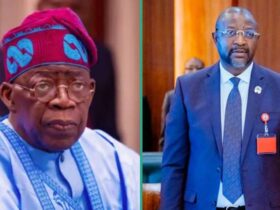
The International Monetary Fund (IMF) has said that Nigeria’s stalled per-capita growth, elevated poverty rates, and heightened food insecurity are exacerbating the ongoing cost-of-living crisis in the country.
This assertion was made in light of increasing inflation, exchange rate instability, sluggish economic growth, and business closures.
The IMF revealed this in its recent report titled ‘IMF Executive Board Concludes Post Financing Assessment with Nigeria.’
The report underscored that low revenue collection has hindered the government’s ability to provide essential services and make public investments.
It also pointed out that headline inflation soared to 27 percent year-on-year in October, with food inflation reaching 32 percent.
These figures reflect the consequences of fuel subsidy removal, currency depreciation, and inadequate agricultural production.
In part, the report stated, “Nigeria confronts a challenging external environment and a spectrum of domestic difficulties. External financing, both from markets and official channels, is scarce, and global food prices have surged due to conflict and geo-economic fragmentation.”
“Per-capita growth in Nigeria has stalled; poverty and food insecurity are high, exacerbating the cost-of-living crisis. Low reserves and very limited fiscal space constrain the authorities’ option space. Against this backdrop, the authorities’ focus on restoring macroeconomic stability and creating conditions for sustained, high and inclusive growth is appropriate.”
READ ALSO: Hungary’s President Katalin Novak Resigns After Decision to Pardon Sex Offender
In the midst of Nigeria facing economic challenges, a report highlighted that on January 12, 2024, the Executive Board of the International Monetary Fund completed the Post Financing Assessment and supported the Staff Appraisal without delay.
The report emphasized Nigeria’s sufficient capacity to repay the IMF. Additionally, the IMF expressed confidence in the new administration’s proactive approach, addressing longstanding structural issues despite difficult conditions.
Promptly, the administration implemented two significant policy reforms that previous administrations had avoided: the removal of fuel subsidies and the unification of official exchange rates.
It added, “The new CBN team has made price stability its core mandate and demonstrated this resolve by dropping its previous role in development finance. On the fiscal side, the authorities are developing an ambitious domestic revenue mobilisation agenda.”
According to data from the Debt Management Office, Nigeria currently owes the IMF the sum of $2.8bn. The Federal Government, in its 2024 budget plans to spend about N8.2tn on debt servicing.
Based on data provided by the Debt Management Office, Nigeria currently holds a debt of $2.8 billion owed to the IMF. The Federal Government, as outlined in its 2024 budget, plans to allocate approximately N8.2 trillion towards debt servicing.
In a recent report, professional services firm PricewaterhouseCoopers (PwC) cautioned that Nigeria’s escalating debt service expenses could potentially impact its ability to service debts, its credit rating outlook, and the cost of borrowing.
PwC projected that debt servicing costs could surge from N8.25 trillion in 2024 to N9.3 trillion in 2025, and further increase to N11.1 trillion in 2026.
“With a high debt servicing to revenue ratio, the government aims to increase domestic debt in 2024 to meet its deficit funding requirements,” the report read in part.








Leave a Reply